Doubts persist over weapons exports
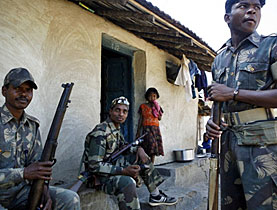
Questions are being raised in Switzerland over exports of weapons and war materiel – and not only by the pacifists behind the nationwide vote on November 29.
The government in its official information brochure for voters describes its policy of trading war material as restrictive, transparent, tough and not open to frequent abuses.
Throughout its campaign the pacifist group for a Switzerland without an Army has tried to undermine the clean Swiss image. It has published a report by Human Rights Watch about the export of machine guns to police in the Indian state of Chhattisgarh.
The security forces, which are fighting Maoist rebels, apparently have children in their ranks.
The economics ministry has rebuffed allegations that it has blatantly violated international standards. Reports say the sale was approved by the cabinet, despite opposition by the foreign ministry.
Last month the ministry also dismissed accusations of inconsistencies in Switzerland’s policy levelled by 70 law professors. In an open letter to the government they criticised arms deliveries to the United States and Germany, which are both involved in armed conflicts in Iraq and Afghanistan.
The legal experts also highlighted exports of war material to India, Pakistan and Saudi Arabia, despite internal conflicts and a questionable human rights record in Saudi Arabia’s case.
Clarifications
Economics Minister Doris Leuthard has repeatedly said Swiss controls of the annual 2,000 – 2,500 exports are the tightest in Europe.
“The protection of human lives is crucial for us,” she is quoted as saying.
Leuthard speculated that the open letter “was not free of propaganda”, but indicated she would seek legal clarifications which will specifically permit weapons exports to countries taking part in United Nations peace missions.
Simon Plüss of the State Secretariat for Economic Affairs (Seco), a unit of the economics ministry, added that the government last March decided to suspend the exports to Pakistan, Egypt and Saudi Arabia. But he said it had to honour valid contracts.
“Deliveries continue for deals which were approved earlier,” he said.
Plüss ruled out business deals with systematic and serious human rights violators as well as with poor countries in receipt of humanitarian assistance. A ban on exports also extended to regimes stockpiling weapons, and those suspected of using the weapons against their own citizens.
Loopholes
Jörg Künzli, professor of law at Bern University, did not sign the open letter to the government, but he points out that there are loopholes which allow weapons exports.
“Sales of simulators, night sight devices or Pilatus aircraft are subject to approval by cabinet but they cannot be banned as such, only weapons exports can be stopped,” he said.
The proliferation of weapons is banned, but regulations can be sidestepped, according to Künzli.
“High-tech elements are manufactured in Switzerland and then exported to a subsidiary abroad where they are assembled and built into a weapon.”
He also says it is relatively easy to escape the eyes of the law by sending construction plans abroad electronically.
Consistency
However, there is no major difference between the arms exports of Switzerland and those of the European Union, according to Künzli. He mentions Israel as an exception. The Jewish state presently cannot purchase weapons from neutral Switzerland.
“What is lacking is a consistent policy by the cabinet,” he said. “In the past economic interest had the upper hand over political considerations.”
Künzli calls for a stricter application of the law and improved transparency to stop abuses.
“The list of countries which are not supplied with arms is not made public,” he pointed out.
Despite apparent doubts, particularly among the younger generation and women, voters appear unlikely to follow a coalition of 35 peace groups and centre-left political parties, according to an opinion poll by a leading research institute.
Urs Geiser, swissinfo.ch
This is the third time since 1972 that voters will have the final say on a proposal to ban the export of weapons. In 1997 a proposal was rejected by three out of four voters.
The latest opinion poll found that opponents of a ban are clearly ahead of supporters.
Last year Swiss weapons exports stood at a record SFr722 million ($716 million) to more than 70 countries, but sales dropped nearly 5% in the first half of this year.
The government and most political parties have argued an export ban would lead to massive job cuts and weaken the national defence capacity.

In compliance with the JTI standards
More: SWI swissinfo.ch certified by the Journalism Trust Initiative

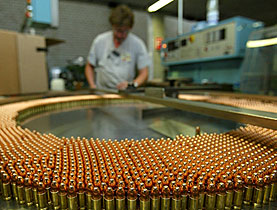
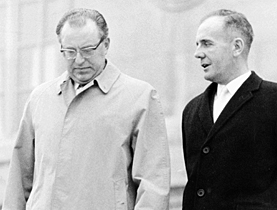
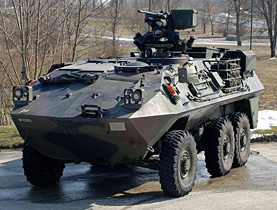
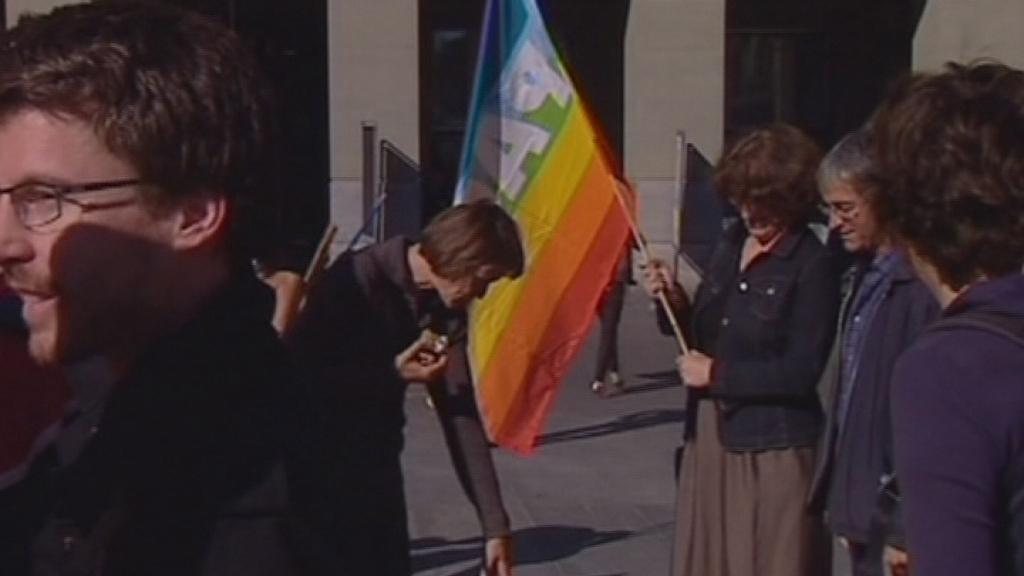

You can find an overview of ongoing debates with our journalists here. Please join us!
If you want to start a conversation about a topic raised in this article or want to report factual errors, email us at english@swissinfo.ch.